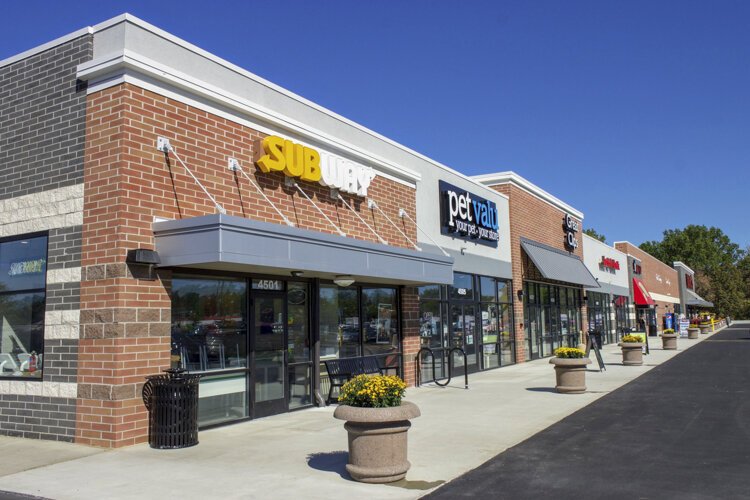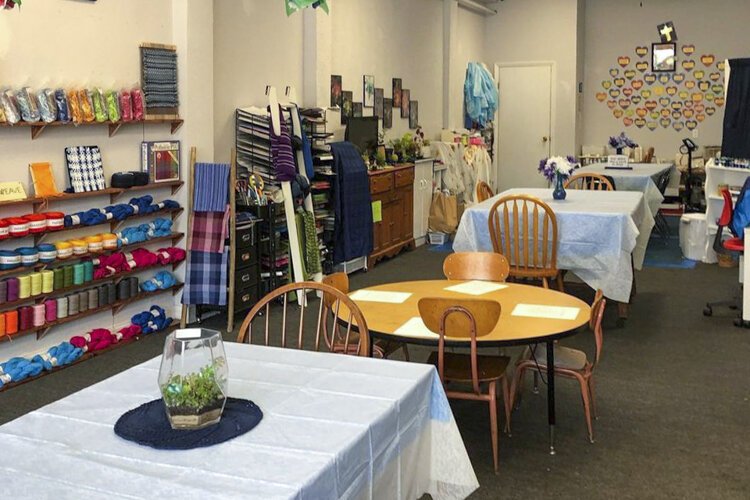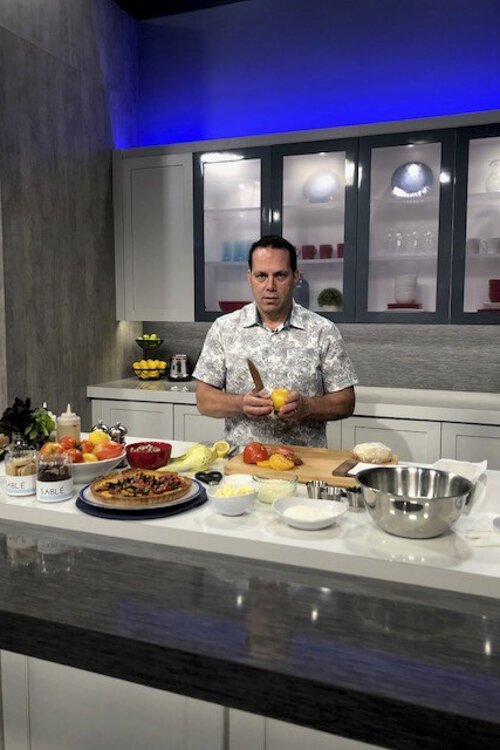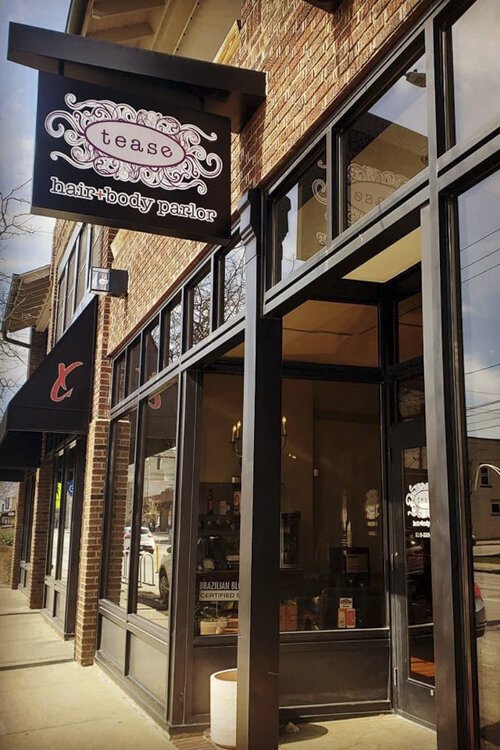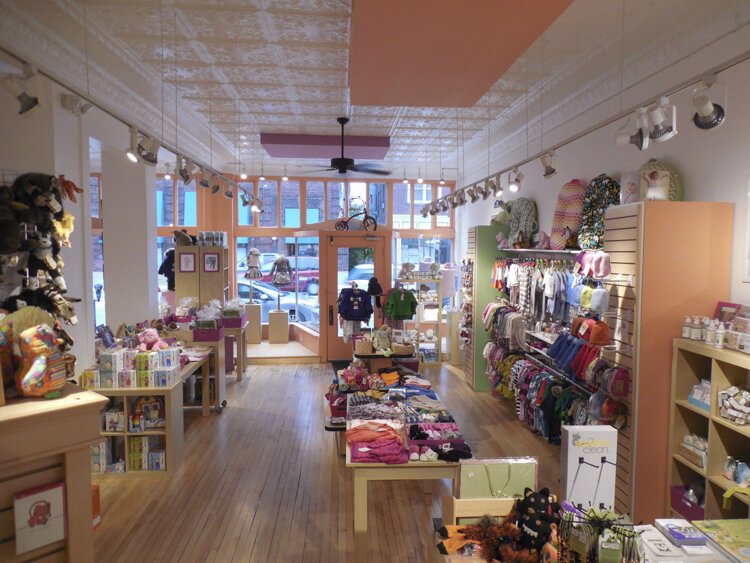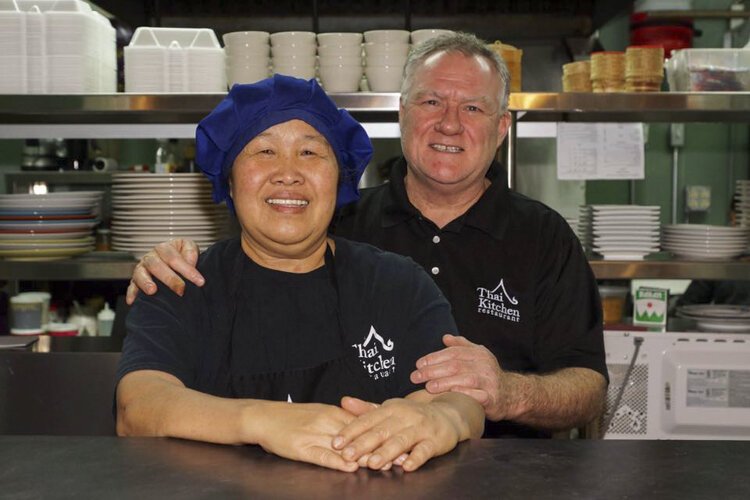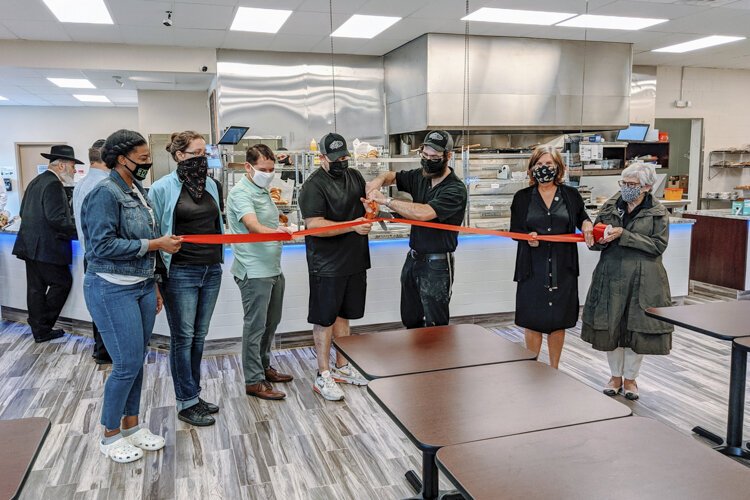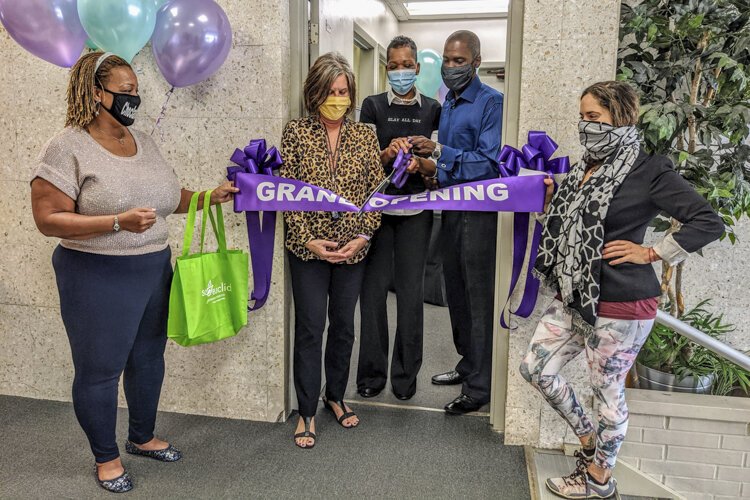New grants boost suburban small businesses struggling during the pandemic
This is the latest story in FreshWater Cleveland's series First Suburbs: A Closer Look, focusing on the suburbs surrounding Cleveland. Built mostly before the 1960s, these “first” suburbs face challenges ranging from urban sprawl to disinvestment. But shrinking news coverage reports mostly on crime. This series instead will look at the unheralded people and innovative programs that are making a difference, through a solutions-based journalism lens.
Before the coronavirus pandemic, Weaving Supply and Studio had just started to get a flow of customers browsing for yarn at its Madison Avenue storefront in Lakewood.
COVID-19 stopped that momentum, while also cancelling the kid-friendly weaving and pottery classes that comprised most of owner Joanne Burns’ revenue.
“My main thing is classes,” says Burns, sole proprietor of the business she launched 16 months ago.“I sell yarn for weaving, too, which I thought would take off, because there’s nothing like that around here. The coronavirus crippled my finances.”
Burns received $750 this spring from the City of Lakewood’s Small Business Rent Relief Grant program, which issued over $187,000 to 118 small businesses before ending in May. The program’s second round kicked off in August, accruing $450,000 in CARES Act money to stabilize businesses struggling due to COVID-related downturns.
Burns obtained an additional $3,000 through the effort—money she used for rent, overdue bills, and to replenish dwindling supplies. The newly minted entrepreneur hopes to stretch this funding through the new year.
“The grant means everything with all the bills going out and nothing coming in,” says Burns. “I’m going to try and make this money last.”
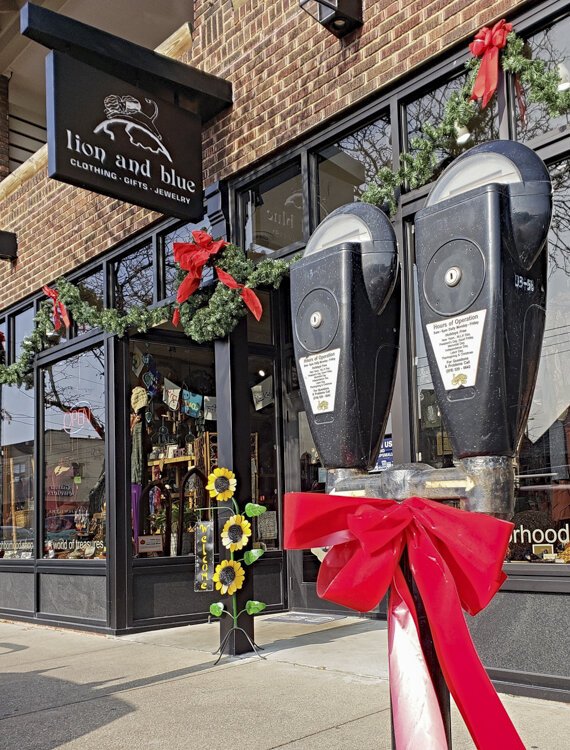 Lion and Blue in LakewoodCleveland suburbs including Lakewood, South Euclid, and Cleveland Heights are stepping up as the federal government hedges on a new round of stimulus for struggling small businesses. Lakewood began accepting applications for its new program in August, offering up to $7,000 per business to cover rental and payroll expenses.
Lion and Blue in LakewoodCleveland suburbs including Lakewood, South Euclid, and Cleveland Heights are stepping up as the federal government hedges on a new round of stimulus for struggling small businesses. Lakewood began accepting applications for its new program in August, offering up to $7,000 per business to cover rental and payroll expenses.
Partnering with its chamber of commerce and community-centered nonprofit LakewoodAlive, the West Side ‘burb will bring $445,870 in total grants to establishments with five or fewer employees. LakewoodAlive executive director Ian Andrews says mayor Meghan George is committed to a small business base that has adjusted in answer to an epochal crisis.
“There’s been a few closures over the last few months, but for the most part, everyone is hanging on,” says Andrews. “People are modifying they way the do businesses. Customers can order online, but pick up curbside at the store. That’s appealing for folks who want to have that interaction while wearing their masks.”
Grant candidates must meet HUD income eligibility criteria, with around $124,000 distributed thus far.LakewoodAlive is working with eligible businesses on documentation and grant website navigation. As of late October, about 60 entrepreneurs have signed up, receiving funding within two weeks of acceptance.
“We want to help out every business in Lakewood that’s interested or has a need,” Andrews says. “Folks have been kind in saying, ‘You know what, I’m struggling, but there are others doing worse than me, so go help them first.’ That’s been really heart-warming to hear.”
Burns is thankful for the support as she plans new socially distanced workshops for early November. “I’m trying my best to keep a good attitude, because everyone is in the same boat,” she says. “I want to stay here and weather this storm.”
In the meantime, Cleveland Heights is advising local small businesses to utilize two new grant programs announced this week by the state of Ohio. Applications begin Nov. 2 for both a Small Business Relief Grant Program and a Bar and Restaurant Assistance Fund.
Eligible owners will receive $10,000 in financial help though the business grant effort. Qualifying bars and restaurants with active liquor are in line for $2,500.
The city also expects to unveil a new funding program next week that will siphon CARES Act dollars to entrepreneurs, says Cleveland Heights business development manager Brian Anderson.
“We’ve had PPP and small business disaster loans to fill the gaps, but the longer the pandemic goes on, there’s still going be a need there,” says Anderson.
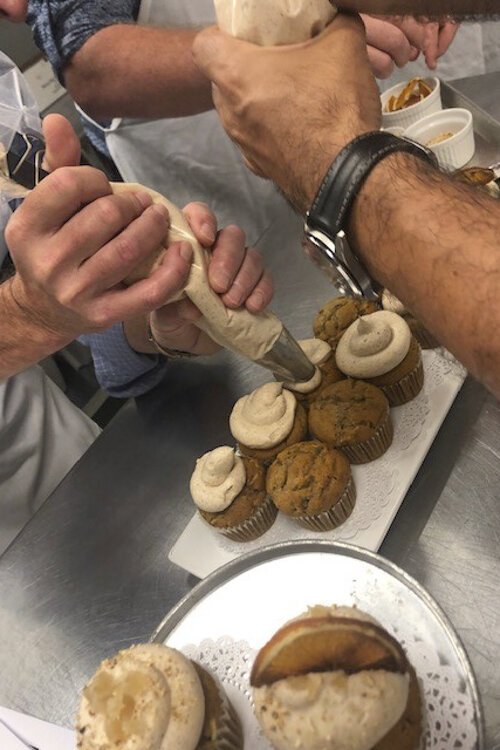 Culinary Occasions‘It’s tough out there’
Culinary Occasions‘It’s tough out there’
The City of South Euclid provided $70,000 in emergency grant assistance to businesses during Ohio’s stay-at-home order this spring. South Euclid awarded 76 grants in April and May, with amounts ranging from $500 to $2,500.
Federal and county funding programs buoyed entrepreneurial ambitions for a couple of months more before expiring. In response, South Euclid recently announced the Vital Business Grant Program, harnessing $50,000 in CARES Act funds to provide ten businesses with awards of $5,000 each.
South Euclid’s new endeavor is focused on storefronts with 25 or fewer employees. Candidates must demonstrate how their businesses perform crucial services and improve the neighborhood, notes economic development director Michael Love.
“We’re looking for businesses that would be a loss for the community,” he says. “They could be personal service, restaurants, or auto-repair shops. It’s up to the business to make a case for why they’re deserving of this funding.”
A committee of volunteer residents will decide which storefronts receive grants, with applications open until Monday, Nov. 2. Would-be grantee Bob Sferra, owner of Culinary Occasions at 4261 Mayfield Rd., says his small catering company has lost half its revenue stream since the middle of March. Sferra has replaced large weddings and corporate events with Zoom cooking classes and the occasional 20-guest micro-wedding.
Federal paycheck protection temporarily floated operations, but not enough to give Sferra any measure of long-term hope. The Paris-trained chef—one of 39 entrepreneurs to apply for the program so far—believes he’s worthy of the additional assistance.
Alongside his retail presence, Sferra offers handmade pastries at various off-site retail locations and makes meals for first responders at Cleveland Clinic and the Greater Cleveland Food Bank.
“We’re like a hometown bakery—you can order your kids’ birthday cakes here,” says Sferra. “We’re a business that continues to volunteer and help out however we can. I’m a community guy who’s given time and energy to South Euclid, so I hope they take that into consideration.”
Love knows business owners are worried about another long Ohio winter as well as a federal coronavirus response that he deems lacking. The new grant program’s competitive aspect, though not ideal, is preferable to giving owners small dollar amounts that will dry up quickly.
“It would be great if we could do $5,000 for every business, but the financials don’t allow for that,” says Love. “It’s about finding innovative ways to get through the pandemic.”
Sferra understands how a lack of resources is limiting South Euclid’s options. But since small business is the economic backbone of any community, he envisions a near future where entrepreneurs like himself may need an extra boost.
“Any little bit helps, whether it’s from local, state or federal government,” he says. “It’s tough out there, it’s very tough.”
The series is made possible through the support of Citizens Bank, the First Suburbs Consortium, and the First Ring Schools Collaborative.


